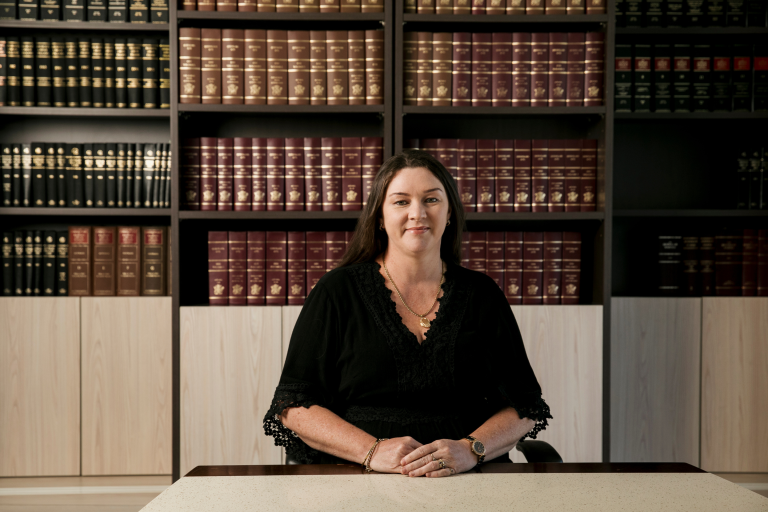Disclaimer: This article provides general information explaining complex legal concepts. Please contact Butler McDermott Lawyers for personalised legal advice.
There are all sorts of questions when it comes to property settlements and this uncertainty can make anyone want to delay. We are here to answer all the frequently asked questions about property settlements and discuss delay risks, time limits, and what your lawyer can do for you.
What is the difference between a divorce and property settlement?
A divorce refers to the actual Divorce Order that results in the legal ending of a marriage.
A property settlement is the division of property, assets, and debts between a separated couple.
A common misconception is that getting a divorce includes a property settlement, spousal or child maintenance or child custody arrangements. Other than having a proper arrangement for children, a property settlement is not a requirement for divorce and is a separate process.
Another misconception is that you have to wait until you can apply for a divorce to start your property settlement. As they are two separate procedures, you can start your property settlement from the day of your separation. You have to wait twelve months from separation before you can apply for a divorce.
How long does a property settlement take?
How long a property settlement will take depends on the avenue you decide to divide property, your level of wealth, and how complicated your assets and resources are. If you can come to an agreement with your ex-partner, you can either draft and sign a Binding Financial Agreement or apply for a Consent Order to the Court. There are legal requirements for either of these options, but they will generally take less time than a property settlement through the Court. Where you can agree and are efficient, it can take as little as a few weeks to settle. However, if there is a lot to consider, it can take a few years.
Why might Sunshine Coast property owners attempt to delay their property settlement?
The state of the property market is a common reason that people try and delay their property settlement. The Sunshine Coast property market is currently performing very well. However, with the residual effects of COVID and the Australian bushfires, there is a lot of worry about the future of the market and potential delays.
Sunshine Coast property owners may also have concerns about having to sell and divide property because it means they may have to try to buy another property in the booming market or face the current rental crisis.
However, a property settlement is important, so seek legal advice. The best thing to do is act early so that you know your options and have the least uncertainty.
When can you perform your property settlement?
You can perform a property settlement any time during your separation before you are divorced. You can also decide a property settlement up to a year after your divorce is finalised. Your divorce is finalised one month and one day after your Divorce Order is served.
What are the risks of delaying property settlement?
There are all kinds of risks to delaying property settlement including:
- The time limit may run out and you can no longer perform a property settlement.
- Your assets and property may become harder to identify and value, especially when determining who owns what when it comes to joint assets and property in the marital home.
- The value of your property may go down, especially where unforeseen events greatly affect value of property.
- Your ex-partner may poorly handle assets and you can end up losing more money.
- You may gain assets or resources, or your ex-partner may incur debts after separation. Property divided is valued at the time of settlement, not when you separate. You may have to divide your own assets or take on the debts of your ex-partner.
Have questions about selling your property? Talk to our conveyancing solicitors today!
What are the time limits?
You must commence property settlement proceedings with the Court within a year after your divorce is settled or two years after the breaking down of a de facto relationship. If you seek a property settlement after this, you will need to show the Court that if you do not commence a property settlement, you or your child will suffer hardship.
Can you delay your property settlement until after the divorce is finalised?
You can delay your property settlement until after divorce – but this isn’t the best decision. You only have one year to divide your property after divorce before the time limitation runs out. The longer your leave your property settlement, the more risks you may run into – and this may delay your property settlement.
What role can your lawyer play in forcing a property settlement to proceed in a timely manner?
Your experienced lawyers at Butler McDermott can guide you through all the steps of your property settlement. We can help you identify and access all your property as well as obtain all the necessary documents. This way, you will have everything you need at each step of the process. We will make sure any applications or agreements are correct and in your best interests, so that you aren’t set back. We will negotiate on your behalf if you and your ex have not yet reached an agreement.
If your ex-partner is refusing to engage with property settlement, Butler McDermott can proceed with an Application to the Court to force property settlement to be finalised.




















